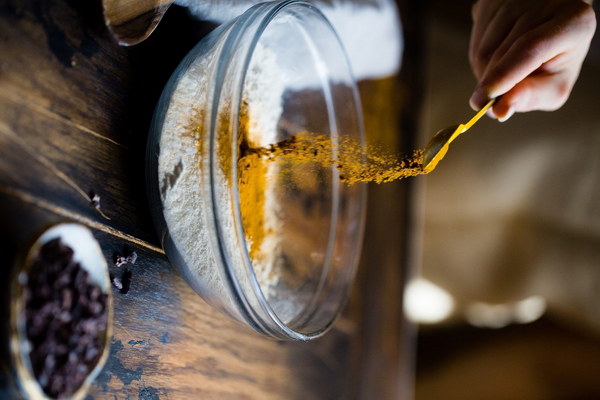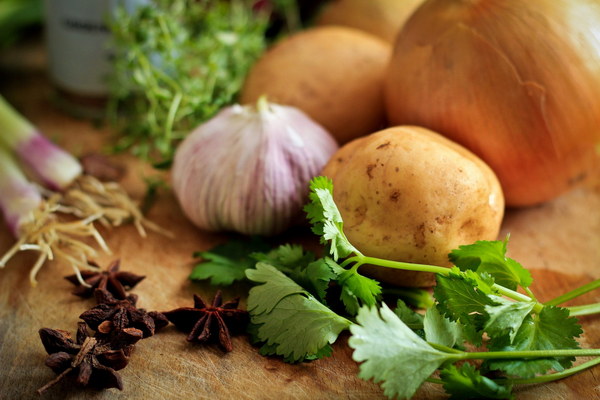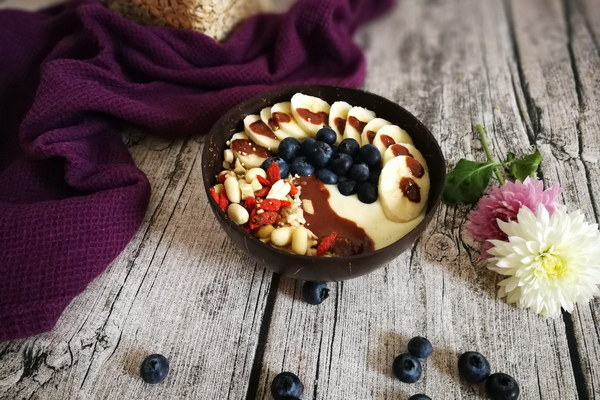Unlocking Wellness The Timeless Elixir of Chinese Herbs for Banishing Dampness and Tackling Flab
In the realm of traditional Chinese medicine, the art of balancing the body's internal energies is a cornerstone of health and vitality. One common ailment that plagues many individuals is the accumulation of dampness in the body, often leading to conditions such as excess weight, bloating, and fatigue. The good news is that nature has provided us with an array of herbs that can help alleviate these symptoms and restore equilibrium. Here's a closer look at some of the most potent and time-honored Chinese herbs for banishing dampness and tackling flab.
Coptis Chinensis (Huang Lian)
Coptis Chinensis, or Huang Lian in Chinese, is a powerful herb renowned for its anti-inflammatory and antimicrobial properties. It's often used to clear heat and dampness from the body, thereby reducing bloating and promoting weight loss. Huang Lian is particularly effective in treating damp-heat conditions that can lead to an accumulation of fat, such as obesity and fatty liver disease.
Atractylodes Macrocephala (Bai Zhu)
Atractylodes Macrocephala, also known as Bai Zhu, is a key herb in Chinese medicine for treating dampness. It has the ability to strengthen the spleen and improve digestion, which can help to eliminate dampness from the body. Bai Zhu is often combined with other herbs to address various symptoms related to dampness, including weight gain, fatigue, and edema.
Poria (Fu Ling)
Poria, or Fu Ling, is a mushroom-like herb that is highly prized for its ability to drain dampness and invigorate the spleen. It is commonly used in herbal formulas to treat conditions characterized by dampness, such as edema, fatigue, and weight gain. Poria's diuretic properties can also help to reduce fluid retention, which can be a contributing factor to excess body weight.
Cynanchum Atratum (Ban Xia)
Ban Xia is another essential herb in the arsenal of traditional Chinese medicine for dealing with dampness and flab. It is known for its ability to transform phlegm and relieve dampness, which can lead to weight gain and other health issues. Ban Xia is often combined with other herbs to address a range of symptoms, including coughs, indigestion, and abdominal bloating.
Cinnamomum cassia (Rou Gui)
Rou Gui, or Cassia Bark, is a warming herb that is used to expel cold and dampness from the body. It is particularly useful in cases where there is a cold, damp constitution, which can manifest as weight gain, cold hands and feet, and general weakness. Rou Gui is often used in conjunction with other herbs to create a formula that supports the body's ability to expel dampness and promote weight loss.
How to Use These Herbs
While these herbs can be powerful allies in the fight against dampness and flab, it's important to use them under the guidance of a qualified herbalist or healthcare provider. They should be tailored to an individual's specific constitution and health needs. Here are some general guidelines for incorporating these herbs into your regimen:

1. Consult a Professional: Before beginning any herbal treatment, it's crucial to consult with a professional who can assess your specific health conditions and recommend the appropriate herbal formula.
2. Herbal Formulas: These herbs are often used in combination to create a formula that addresses the individual's specific symptoms. These formulas can be in the form of teas, capsules, or powders.
3. Preparation: Some herbs require specific preparation methods to maximize their effectiveness. For example, certain roots may need to be soaked in water before use.
4. Duration: It's important to follow the recommended duration of treatment as advised by your healthcare provider. Herbs should not be used indefinitely without supervision.
5. Supplements: In addition to herbal treatments, it's important to adopt a healthy lifestyle, including a balanced diet and regular exercise, to support weight loss and overall health.
In conclusion, the use of traditional Chinese herbs for addressing dampness and excess weight has a rich history and can be an effective part of a comprehensive wellness plan. By harnessing the power of nature's own remedies, individuals can take a step towards a healthier, more balanced life.









